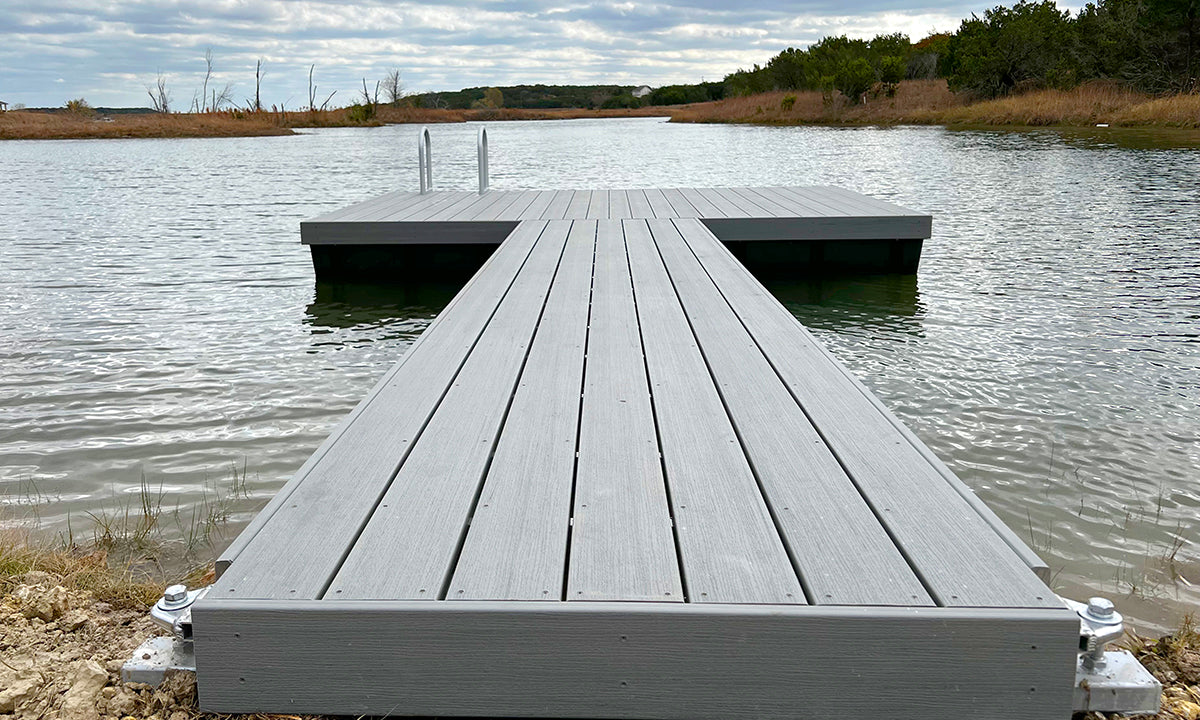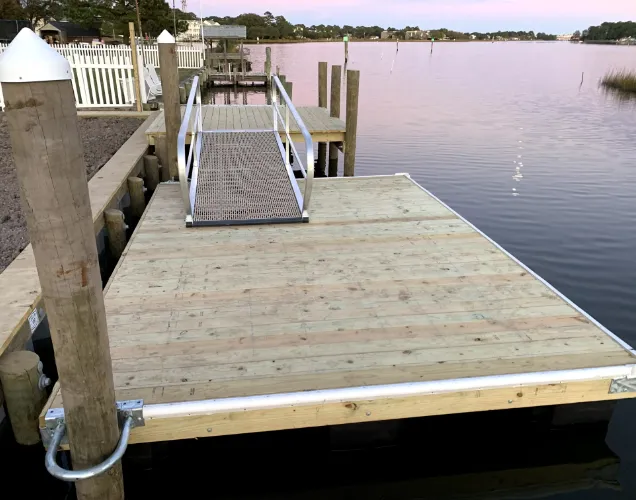Picking the Right Dock Company: Aspects to Consider for a Smooth Installation
Picking the Right Dock Company: Aspects to Consider for a Smooth Installation
Blog Article
The Ultimate Guide to Choosing the most effective Floating Docks
Selecting the ideal floating dock calls for a comprehensive understanding of various elements that influence both efficiency and durability. Aspects such as dock kinds, products, and necessary features considerably influence your decision-making procedure.
Understanding Floating Dock Kind
When picking a drifting dock, it is vital to recognize the various kinds offered, as each offers unique functions and applications. Floating docks largely drop right into three classifications: modular, stationary, and pontoon docks.
Modular docks are made up of individual areas that can be easily constructed or reconfigured, making them ideal for transforming water levels and varied uses, such as business operations or entertainment activities. Their adaptability allows for customization based upon details requirements.

Pontoon docks are defined by their buoyant framework, commonly made up of several pontoons that provide stability and assistance. They are especially well-suited for larger vessels and are commonly used in marinas or for beachfront homes. Understanding these kinds help in choosing one of the most appropriate floating dock to fulfill specific requirements, guaranteeing optimum performance and security.
Key Materials for Resilience
Picking the appropriate materials for floating docks significantly influences their longevity and longevity. One of the most typical products consist of timber, plastic, steel, and composite materials, each offering unique benefits and restrictions.
Timber, frequently preferred for its aesthetic appeal, needs normal maintenance to stand up to wetness and decay. Pressure-treated lumber can improve resistance to rot, but it might still be at risk to insects and weathering.

Plastic docks, made of high-density polyethylene (HDPE), are resistant to corrosion, UV radiation, and influence, making them a popular option for seaside settings. Their lightweight nature also assists in very easy setup and relocation.
Metal docks, typically created from light weight aluminum or galvanized steel, offer outstanding stamina and toughness. They are immune to rust, particularly when dealt with, however might require additional insulation to avoid warmth build-up in hot environments.
Composite products, incorporating wood fibers and plastics, deliver the advantages of both wood and plastic, withstanding dampness and fading while requiring very little upkeep. - floating docks
Ultimately, the choice of products should align with ecological conditions, planned usage, and maintenance choices to ensure the floating dock remains functional and aesthetically pleasing gradually.
Crucial Attributes to Take Into Consideration
While the option of products is crucial, thinking about important features for floating docks is similarly vital to guarantee optimum efficiency and individual contentment. One key feature to assess is the dock's buoyancy ability, which figures out exactly how much weight it can support without immersing. floating docks. This is crucial for fitting watercrafts, personal boat, and even leisure tasks
In addition, mobility is a significant factor to consider. Depending on your demands, you may want a dock that is very easy to dismantle and deliver, particularly if you intend to move it seasonally. Stability is another vital function; a well-designed floating dock needs to reduce motion caused by wind and water currents, offering a safe platform for customers.
Security attributes, such as non-slip surface areas and rounded sides, are also find more info important to prevent accidents, especially in wet problems. Consider the accessibility of accessories, such as cleats, bumpers, and ladders, which can enhance the functionality of your dock.
Installation and Maintenance Tips
Establishing and preserving a drifting dock calls for mindful planning and interest to information to guarantee its durability and optimum efficiency. Begin by choosing an ideal place that decreases exposure to strong currents and waves, which can create wear and tear. Guarantee that the water deepness is adequate for the dock's elevation which it is anchored securely to protect against motion.
Throughout installation, follow the supplier's standards closely, as incorrect assembly can endanger security. Usage high-grade materials immune to deterioration, such as aluminum or treated timber, to enhance sturdiness. Frequently examine all parts, consisting of drifts, adapters, and anchoring systems, for indications of damage or wear.
If your dock makes use of flotation protection tools, guarantee they stay cost-free and intact from punctures. By adhering to these setup and upkeep suggestions, you can delight in a trusted and useful floating dock for years to come.
Budgeting for Your Dock
Budgeting for your dock is a vital action that can substantially impact your overall fulfillment and investment in a beachfront home. Establishing a clear spending plan helps you navigate the numerous alternatives readily available and guarantees you make notified decisions that line up with your economic abilities.
Begin by determining the dimension and style of the dock you require, as these aspects will considerably influence the expense. Floating have a peek here docks can differ substantially in price, depending on materials, buoyancy, and functions like devices and ramps. Research different suppliers and vendors to contrast costs and comprehend the marketplace value.
Along with first expenses, think about ongoing expenses such as upkeep, insurance policy, and potential repair services. Assign funds for these recurring expenses to prevent surprises down the line. It's also sensible to allocate any type of essential licenses or assessments, which might be required by regional guidelines.
Lastly, maintain in mind the possible return on investment. A well-planned dock can improve your property's value and appeal, giving a positive monetary influence in the long term. By budgeting effectively, you can make sure that your dock fulfills your demands without endangering your economic security.
Conclusion
To conclude, choosing the ideal floating dock requires a detailed evaluation of various variables, including dock kinds, products, necessary features, and installation procedures. Focusing on durability and conformity with neighborhood regulations eventually boosts performance and home value. Mindful consideration of monetary restraints will certainly better ensure an audio investment. By sticking to these standards, individuals can make enlightened decisions that promote long-lasting contentment useful source and use in water atmospheres.

While the option of materials is vital, considering important features for floating docks is equally important to ensure ideal efficiency and customer complete satisfaction.Setting up and maintaining a drifting dock requires careful preparation and attention to detail to guarantee its long life and optimal performance. Floating docks can differ significantly in price, depending on products, buoyancy, and functions like accessories and ramps.In verdict, choosing the optimal floating dock requires a thorough analysis of different variables, consisting of dock types, materials, vital attributes, and installation procedures.
Report this page